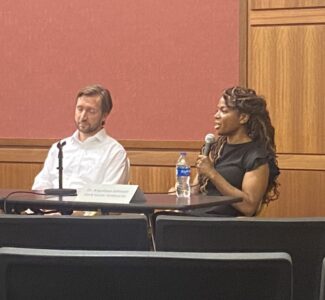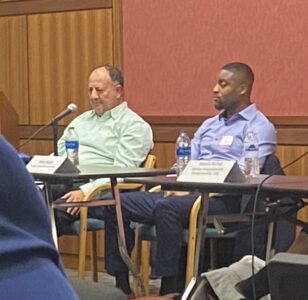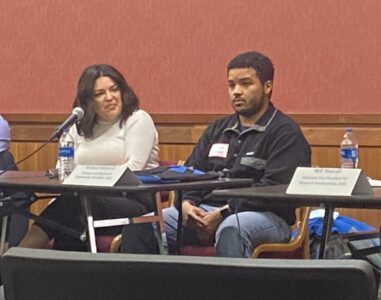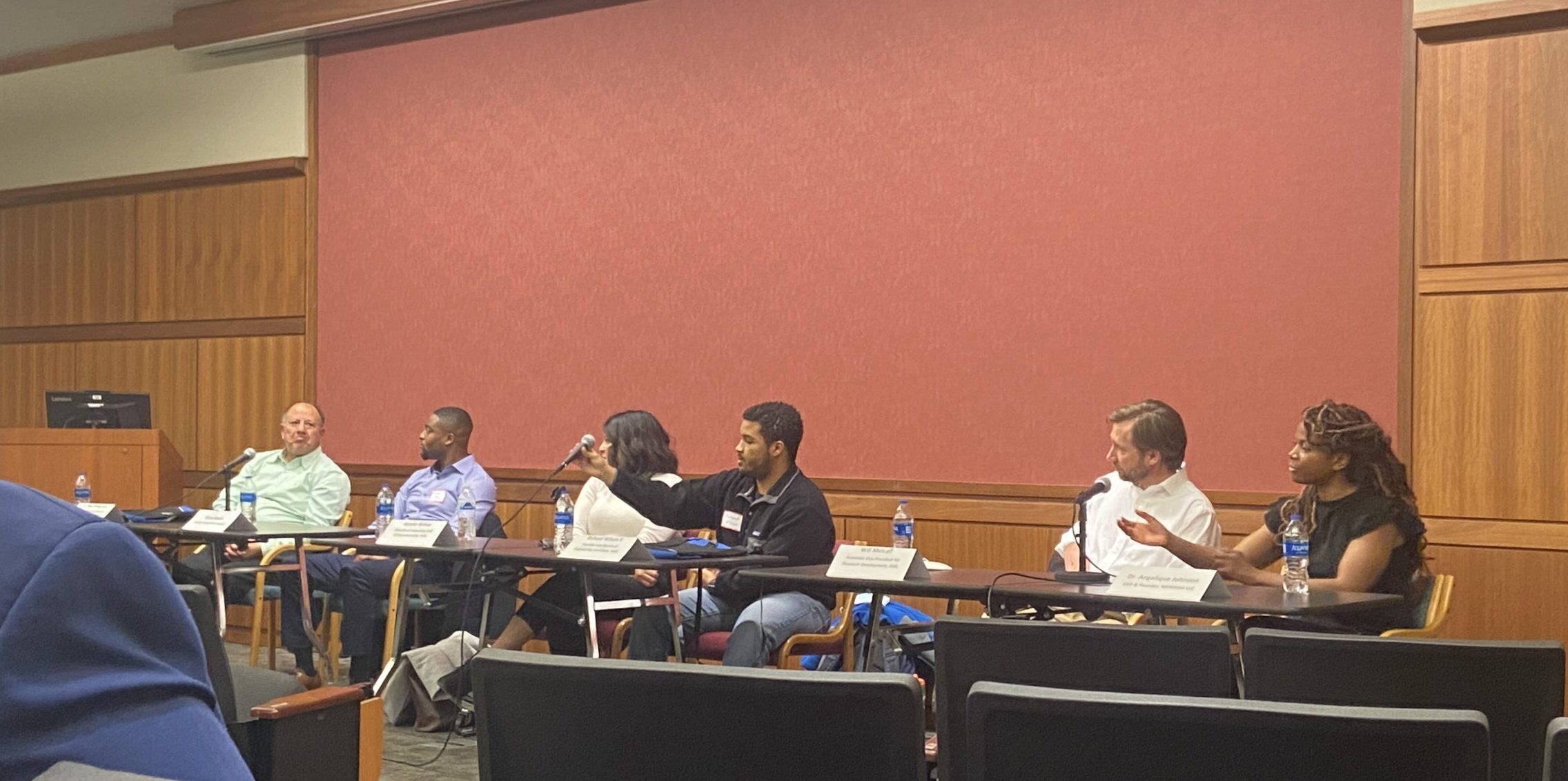By Tate Luckey —
Last week, the Ekstrom Library Chao Auditorium hosted an Entrepreneurship and Innovation Symposium panel, where the panelists responded to questions about their experiences within the industry and gave helpful tips to students.
On Important “Soft Skills” to learn
Adel Elmaghraby, Industrial Research and Innovation Director at the U of L Speed School
“Persistence, risk analysis, and risk acceptance especially is an important talent. I wasn’t risk-tolerant. Be persistent and be willing to take risks if you’re an entrepreneur. Everyone also always emphasizes communication, but cultural acceptance of other people and other customers should be emphasized, too. ”
Richard Wilson II, Global Operations Specialist at Meta
“I’ve always asked myself ‘What would be the worst possible outcome’. If I can stomach that worst possible experience, it’s definitely worth doing. The art of selling yourself is also important; with everything in entrepreneurship, selling is definitely an important skill to have.”
Angelique Johnson, CEO/Founder of Memstim LLC

Will Metcalf (left) and Dr. Angelique Johnson (right)
“I want to add to that- you have to believe in yourself first; you can’t sell something you don’t believe in.”
Will Metcalf, Associate Vice President for Research, Innovation, and Partnerships, Director of Entrepreneurship Law Clinic, Brandeis School of Law
Negotiation, too, is a big part of sales, the tactics and nuances of it. I’m personally really impressed with our students. It’s all about making a connection with someone.”
On the Difficulties of Networking
Wilson II – “It can definitely be a bit nerve-wracking at first, but from what I’ve noticed is everyone is kind of figuring it out as they go. It takes a bit of time to do. Try not to be as nervous, and know it takes time. Joining clubs is great because you get to practice your networking skills in a safer environment.”
On the difficulties of the innovation process

Adel Elmaghraby (left) and Ricky Mason (right)
Elmagrahby – “Firstly, to start. The next biggest thing is to believe in it- if you don’t believe in it and be persistent, you won’t get it moving. Scaling it up, too, is the biggest failure in most industries- a lot of products are not designed to be scaled up [for engineers] or to be secure or extendable to other applications. Those are the toughest things that people need to think about.”
On the Types of People that have helped them along the way
Ricky Mason, Founder of BrainSTEM University and Kentucky Agritech
“For me, it is being in the right place/internship in that field. At my first few internships, I found someone that I can connect with easily. I also ended up having different mentors in different stages of my life, short-term and long-term.”
On Failure

Natalia Bishop (left) and Richard Wilson II (right)
Natalia Bishop, Director of Innovation and Entrepreneurship at the University of Louisville and Founder of Story, Level Up
“Play the game one play at a time. Check your ego at the door because you’re going to get beat up. One second you may have a $200,000 deal, and now you don’t because your stock falls or there are warehouse shipping issues or whatever. Be “mentally detached”, in a way. Failure is helpful because it allows you to think of what the right next step is [for future ventures]. “
Wilson II – “I was really sad because of what happened to Happnin (a previous location-based social media app-venture of Wilson’s). I had dedicated a lot of time and even lowered my involvement in student clubs; understandably, I was super sad when it didn’t work out. Since that experience, I’ve realized that generally the way failure is presented isn’t the healthiest; failure is kind of a good thing. You at least tried your best to make something work. You can learn what to pivot from and adjust to in your next iteration.
Mason – “Failure in a startup is a different space than, say, during your classes. Too often do we discount small businesses and even nonprofits during the startup business.”
Bishop – “I want to add, think about failure differently; you aren’t a failure, you are experiencing failure; think about the skills you learned during the process and understand what the failure means.”
File Photos // The Louisville Cardinal //





